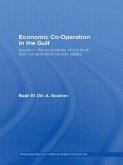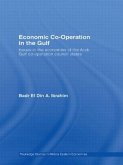The book highlights the evolution of the defence industry in the Gulf Cooperation Council (GCC) states, emphasising its historical reliance on arms imports, the shift towards domestic defence capabilities, and the implications for regional security and economic development. Key Takeaways The GCC states heavily relied on arms imports initially due to limited domestic industrial capabilities and evolving security threats. The United States played a significant role as a primary arms supplier to the GCC states during their early development stages. Over time, concerns about supply chain vulnerabilities and over-dependence on foreign powers led to a strategic shift towards developing indigenous defence industries. The book explores the economic implications of the local defence industry, emphasising its potential to drive economic growth, create job opportunities, and foster technological innovation. It also delves into the security implications of defence industry development, focusing on enhancing military capabilities and strengthening national security. The book's methodology adopts a multidisciplinary approach, integrating historical, economic, geopolitical, and security perspectives through primary and secondary research. The book's structure follows a logical flow, exploring the drivers and challenges of defence indigenisation, economic diversification, technology transfer, and their impact on regional security cooperation. Guardians of the Gulf is essential for policymakers, scholars, and anyone seeking a deep understanding of contemporary defence developments in this critical region.
Hinweis: Dieser Artikel kann nur an eine deutsche Lieferadresse ausgeliefert werden.
Hinweis: Dieser Artikel kann nur an eine deutsche Lieferadresse ausgeliefert werden.








